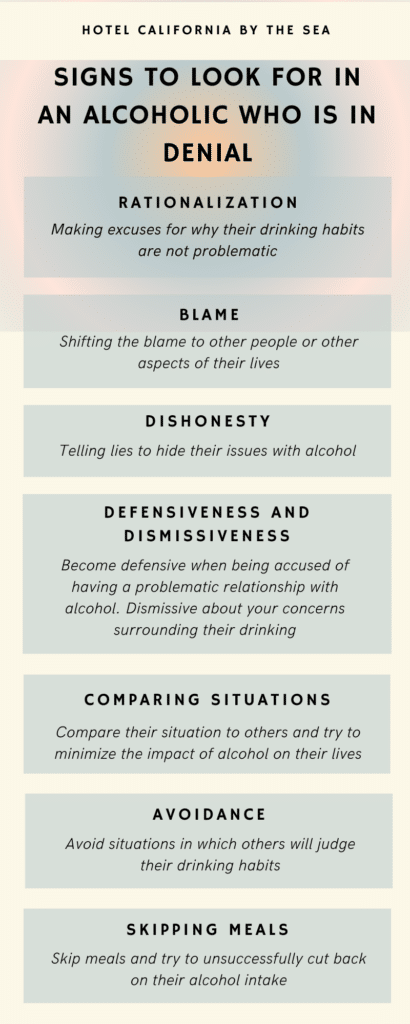How to Help an Alcoholic who doesn’t want Help
Alcohol use disorder is a chronic disease characterized by excessive drinking despite repeated negative outcomes due to alcohol consumption. Over an estimated 100 million people worldwide have reported having an alcohol use disorder. Substance use disorders are painful conditions that are much more common than people expect.
Alcohol has become a norm in many aspects of society and culture. It has become a significant part of the social scene and activity. Anything from traditional cultural ceremonies, social gatherings and wedding celebrations all involve drinking alcohol. These situations all positively portray alcohol and are an example of alcohol use. There is a difference between alcohol use and alcohol misuse. Misuse involves excessive drinking, the inability to stop drinking and the development of physical and emotional dependence on drinking.
Dependence refers to when the body has adapted to chronic substance use resulting in high tolerance and changes in brain chemistry. Those who have become dependent on alcohol also experience withdrawal symptoms once alcohol use has been drastically cut down or eliminated. Addiction is defined as repeated alcohol misuse followed by harmful consequences that negatively impact your health and aspects of daily life.

Signs of Alcohol Use Disorder according to the DSM-5
- Drinking more than intended
- Trying to cut back but not being able to
- Letting alcohol consume the days
- Having an intense craving for alcohol
- Not being able to meet social, personal and work obligations
- Experiencing relationship problems due to alcohol use
- Developing health or mood complications
- Engaging in risky behaviors
- Developing a high tolerance for alcohol
- Experiencing withdrawal symptoms when alcohol use is cut down
As a family member or friend of a person struggling with alcohol misuse, it can be challenging. Watching your loved one go down a dangerous and uncertain path can be difficult. Fortunately, there are ways to help.
Supporting vs Enabling
What is the difference between supporting a loved one with AUD and enabling your loved one with AUD? Enabling describes how a loved one’s negative behaviors are rewarded through a lack of consequences and accountability. For example, protecting a friend from the consequences of their alcohol abuse, keeping secrets about their alcohol abuse on their behalf and making excuses for their harmful behaviors associated with alcohol abuse.
Other examples of enabling a person with AUD include financially supporting their unhealthy habits, assisting them in not taking responsibility and not setting any personal boundaries. When trying to help a loved with suffering from addiction, do not enable them. Instead, support them in getting help and overcoming their addiction.
Support for a loved one with AUD is letting them know how much you love them, while still holding them accountable for their actions and behaviors. Examples of ways you can support them include helping them research rehabs or therapy treatments, giving them a ride to support group meetings and engaging and participating in activities that do not include alcohol.

How to help an Alcohholic who doesn’t want help
- Acknowledgment – Validate the addiction as a disease and not as a character flaw of the person. Have a sense of empathy and compassion. This can significantly influence your loved one to seek out professional help.
- Don’t pressure them – Encourage your loved one to seek treatment. Let them know how it makes you feel and express your concerns for their health and wellbeing. In the end, it is ultimately up to them as to whether or not they want to change.
- Avoid staged interventions – There is little scientific evidence that supports interventions can work for long-term recovery. If an intervention is the last resort and is necessary, consider also bringing in a professional and credited expert for assistance.
- CRAFT Intervention method – CRAFT stands for Community Reinforcement and Family Training. This intervention method was made popular in Denmark. Instead of using shame and humiliation to convince a person to get professional addiction help, it focuses on support from loved ones. Working with the client and their loved ones to address triggers and effective communication styles can help the client understand how he/she can better take care of themselves and recover from their addiction.
- Listen – Sometimes just listening to what your loved one has to say can help them better understand the situation and influence them to get the help they need.
- Be present with them – Most of the time, people just want to know that they are not fighting alone and they are being supported and loved throughout this difficult journey of healing.
- Help problem solve – Sharing helpful resources, giving rides to treatment, and offering to handle less pressing duties so your loved one can go to therapy or support groups are extremely helpful. This leaves more time for your loved one to focus on healing their physical, emotional and psychological person.
How to help an Alcoholic in Denial
There may be a situation in which your loved one seems to have developed an unhealthy pattern of drinking. However, when you approach them about it, they are in denial about having any problems with their drinking habits. Some of these people are high-functioning alcoholics and seem to have their life together. They can successfully manage tasks surrounding work, school, family and finances. Oftentimes, these people are genuinely unaware of their problems.
Signs your loved one is in Denial
- Rationalization – They will begin to make excuses for why their drinking habits are not problematic
- Blame – They shift the blame onto other people or other aspects of their lives
- Dishonesty – They will begin telling lies to hide their issues with alcohol
- Defensiveness – They can become defensive when being accused of having a problematic relationship with alcohol
- Comparing situations – They will compare their situations to others and try to minimize the impact of alcohol on their lives
- Being dismissive – They are dismissive about your concerns surrounding their drinking
- Avoidance – They will begin to avoid situations in which others will judge their drinking habits. They may even begin to avoid being around you and other loved ones in an attempt to hide their drinking
- Skip meals – Some people will skip meals and try to unsuccessfully cut back on their alcohol intake
Why is denial so common among those who experience alcohol use disorder? Denial is a type of defense mechanism that alcohol abusers use to avoid facing realities that may be too stressful or painful to deal with. Sometimes it is an unconscious process in which the person refuses to acknowledge the severity of their problem with alcohol.
Check Your Insurance Coverage for FREE
Find out if your insurance covers addiction treatment in minutes. We accept most insurance!
Reasons why an Alcoholic may be in Denial
- The person is not ready to accept that they might have a problem with alcohol
- The person may genuinely not recognize that they have a problem with alcohol
- The person may feel a sense of guilt or shame due to the stigma behind drinking alcohol
- The person is influenced by the normalization of drinking in society
- The person has developed a chemical dependence
- The type of personality can influence a person’s relationship with alcohol
- The lack of education about the risks of alcohol
Because so many people who suffer from alcohol use disorder are in denial there are multiple ways in which you can help them. Asking permission to discuss the situation can begin to open up an honest conversation about their relationship with alcohol. Ask them how alcohol is affecting aspects of their lives. You can bring up specific behaviors you are concerned about and their effects on the person’s health and safety.
Continue to reiterate your concern for that person. Be empathetic and ask them about what you can do to help support them to stop drinking or cut down on drinking. Avoid judging and blaming. You can also suggest more formal forms of support such as therapy or addiction support groups. By offering options for treatment rather than demanding they get treatment, your loved one may be more open and honest about their unhealthy relationship with alcohol.
Lastly, set boundaries for yourself and make sure to also prioritize your health needs. Supporting a loved one struggling with alcohol addiction can be just as draining and stressful on you as it is for them. Make sure you are also taking care of yourself emotionally and mentally. This will only help you be a better ally to your loved one.
Reach out to Hotel California by the Sea
We specialize in treating addiction and other co-occurring disorders, such as PTSD. Our Admissions specialists are available to walk you through the best options for treating your addiction.
Hotel California by the Sea offers intensive treatment methods to help those suffering from a substance use disorder. The alcohol use disorder treatment program offers varying degrees of care including detox, residential and outpatient programming. Specialized treatment methods such as CBT, DBT and EMDR therapy help clients uncover the root causes for their addiction to alcohol. Hotel California by the Sea provides customized individual treatment plans. There is no one-size-fits-all for addiction recovery. Each client will receive the care, resources and support needed to overcome their addiction and maintain long-term sobriety.
References:
https://psychcentral.com/addictions/can-you-convince-someone-with-substance-use-disorder-to-get-help
https://psychcentral.com/addictions/how-to-help-a-high-functioning-alcoholic-in-denial
https://www.healthline.com/health/alcohol/say-no-to-alcohol
https://www.goodrx.com/conditions/alcohol-use-disorder/how-to-help-alcoholic-in-denial
https://www.americasrehabcampuses.com/guides/how-to-talk-to-an-alcoholic-in-denial/
https://www.alcoholrehabguide.org/support/10-steps-alcoholic-refuses-treatment/
https://www.helpguide.org/articles/addictions/helping-someone-with-a-drinking-problem.htm
